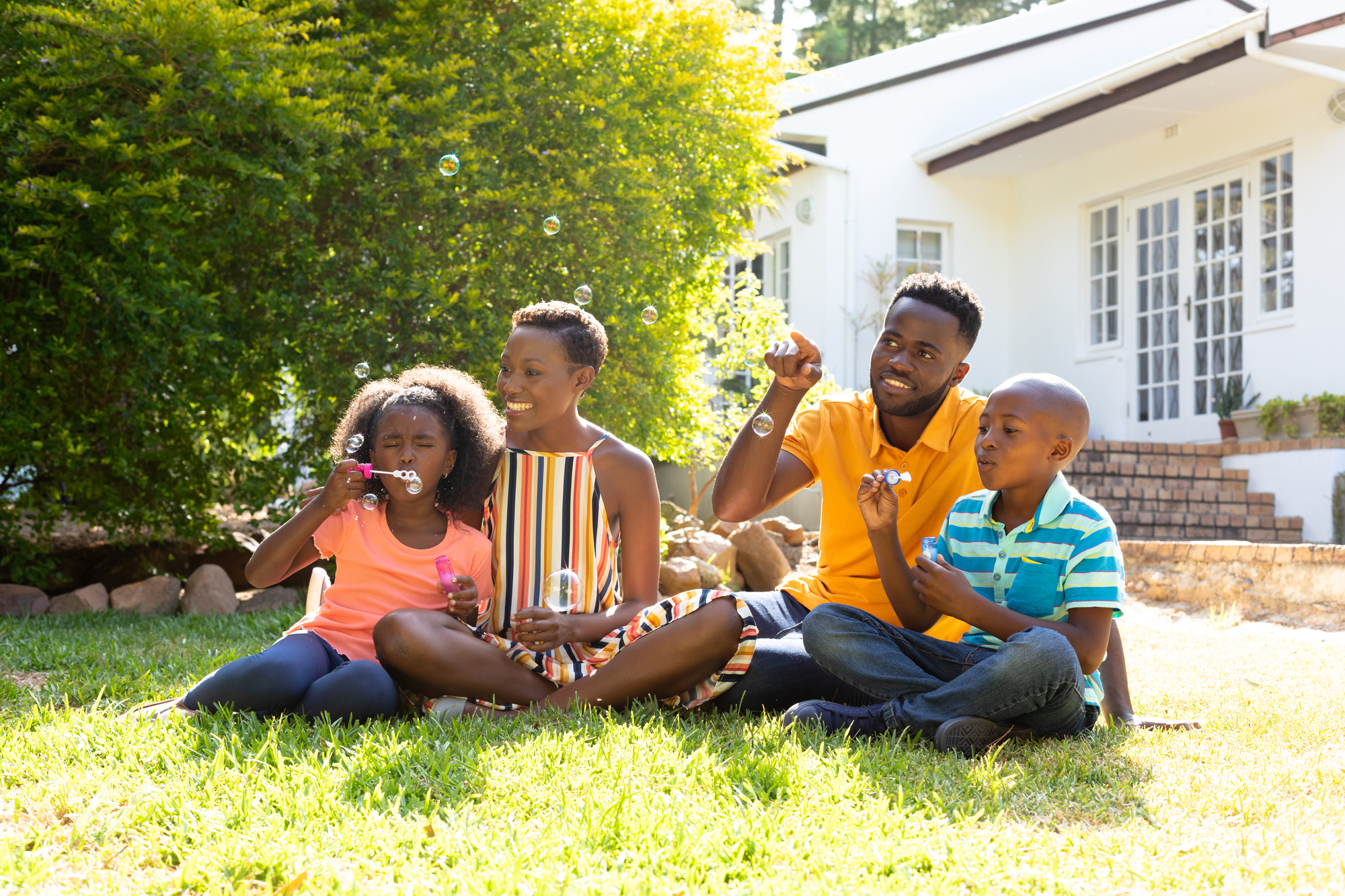
Let’s Go Outside: The Incredible Impact of Nature on Mental Health
Jessica Fowler, CADC, CPS
Substance Use Prevention Senior Specialist
Hundreds of studies have found a connection between spending time in nature and mental health benefits for children and adults. As May flowers bloom and the sun warms the ground, celebrate Mental Wellness Month by getting outside, centering yourself, and encouraging others around you to do the same. Let’s explore the mental health benefits of the green and blue spaces found in nature:
- Improvements in overall mental health.
- Reduced stress.
- Boost in serotonin.
- Increase in resilience.
- More feelings of happiness.
- Positive social interactions.
- Greater confidence.
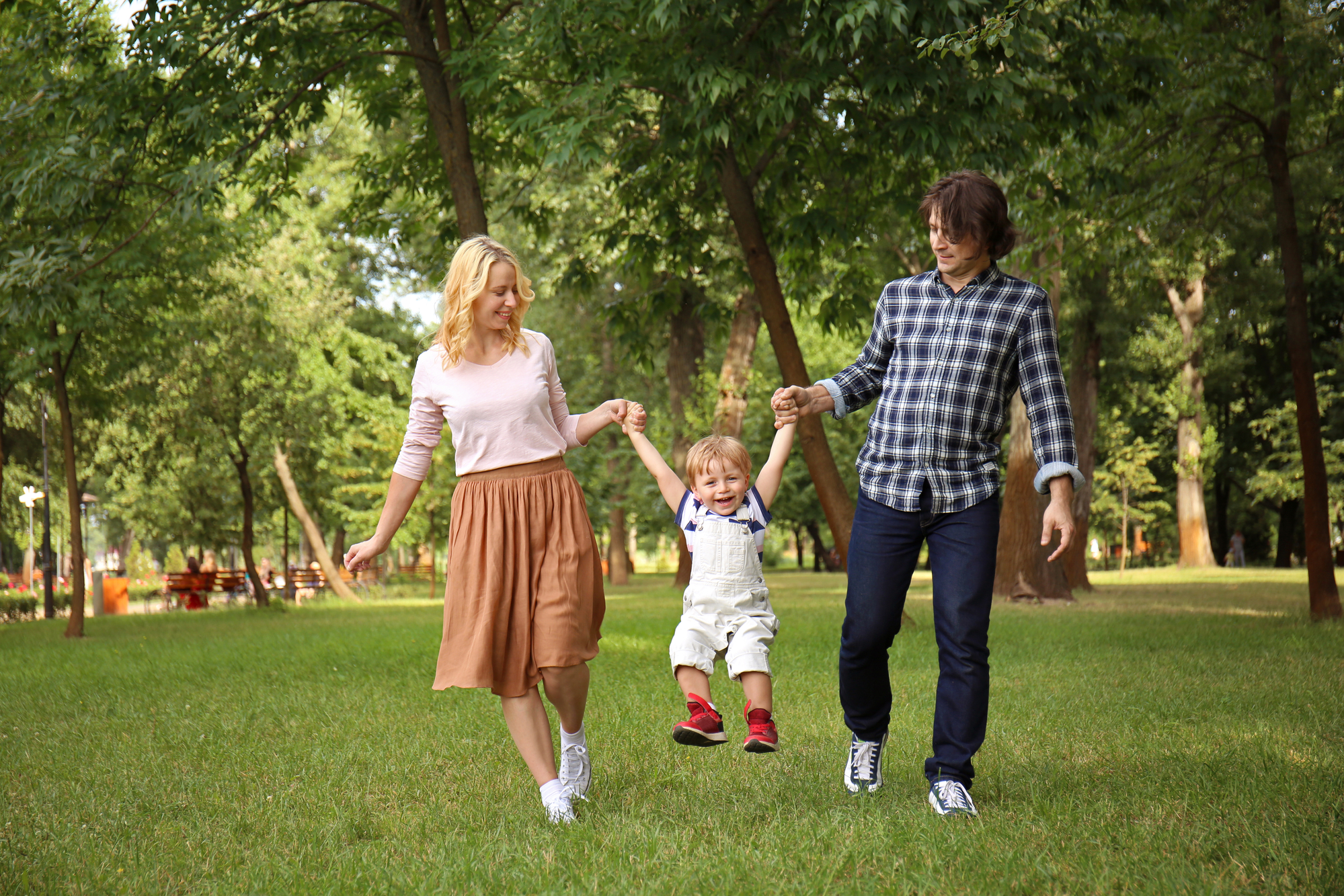
In Japan, many use the evidence-based practice of “Forest Bathing,” or spending time in the forest, to promote mental health. This practice improves health in a number of ways, including lowering blood pressure and decreasing the stress hormone, cortisol.
Getting outside doesn’t have to include a lush forest or rambling river. A local park, community garden, favorite neighborhood block, or a friend’s backyard can be just as tranquil and reap the same mental health benefits. You and your family may have to get creative to find a green or blue space to enjoy, but any time spent outdoors is time well spent and full of mental and physical benefits. Try some of these ideas:
- Take a family walk.
- Blow bubbles outside.
- Play basketball or hopscotch at a local park.
- Enjoy a picnic together.
- Walk and point out favorite plants, flowers, or landmarks.
These practices can increase family bonding and open communication. Making a habit of playing outside together in a way that works for you likely will result in a mental health lift for the whole family.
There are also many benefits for kids when they play outside. Time in nature can promote social-emotional learning by fostering the use of creativity and imagination. The unstructured play experience that nature provides empowers children to interact with their surroundings, designing their own inventive play, which can increase confidence and self-esteem. Children learn responsibility while being outdoors as they experiment with caring for the planet and the living parts of their environment. Playing outside gets the body moving, which lowers stress and increases focus, concentration, and physical wellness.
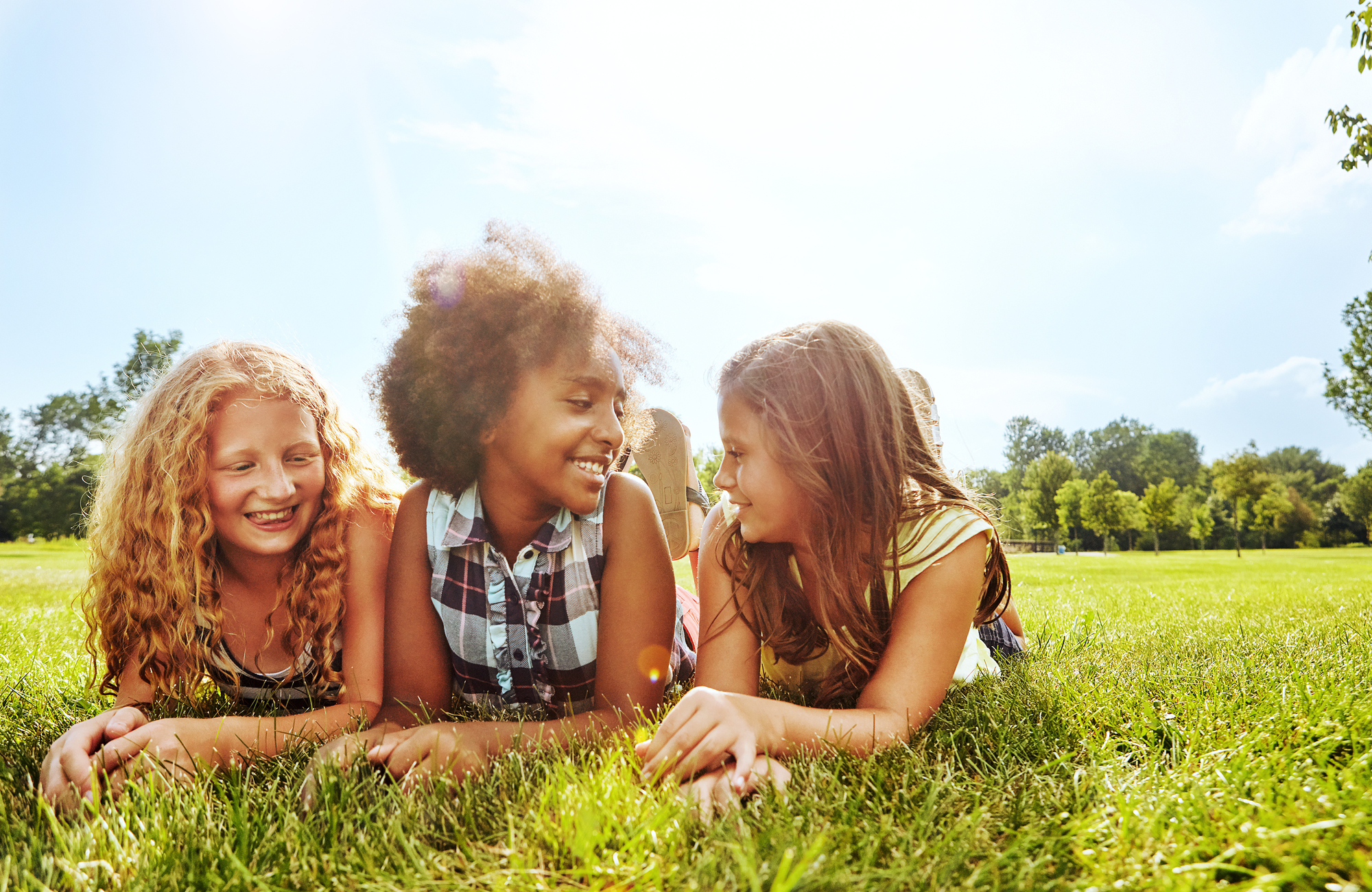
The impact of spending time in nature has even more pronounced benefits for children from historically marginalized communities. Those communities tend to have less access to green or blue spaces. There are 28 million children in the United States that do not live within 10 minutes of a high-quality park or green space. According to Rachna Buxani Mirpuri, MMHC, author of A Pint of Patience with a Dollop of Love, “several studies have found that kids from marginalized communities who have access to nature tend to engage in less crime and are more socially trusting. It helps promote a sense of safety, thus positively affecting the mental health of children and youth.” Studies have found that even a moderate number of shrubs or trees in a community has been linked to lower rates of depression. As a society, we need to advocate for equitable access to green spaces for all children and work to provide safe spaces to play outside.
As spring turns into summer, remember that no matter where you live, you can go outside and take deep breaths as you observe the sky and the plants around you. This repeated practice will increase the mental wellness of your family and you as it lowers stress and opens communication. Be present in nature with your friends and family and reap the benefits on your mental and physical well-being.
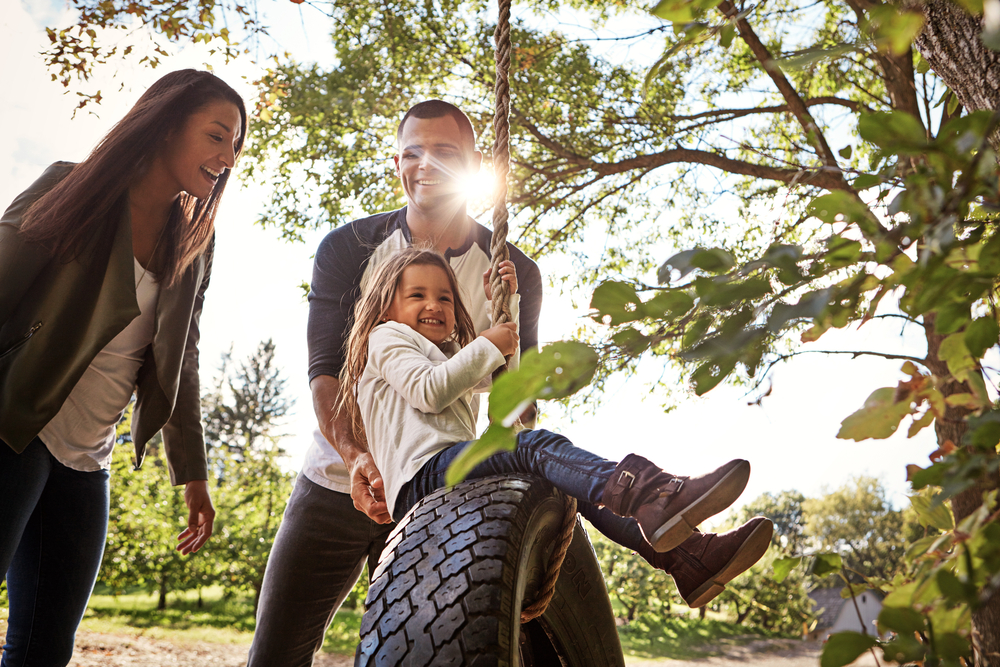
Featured Poe Program:
M.I.N.D. 101 – Mindfulness in Navigating Decisions
During M.I.N.D. 101, participants will explore how thoughts, feelings, and actions are connected and how to use a growth mindset to increase mental wellness. Identifying stress, positive management techniques, healthy decision-making, and goal setting will also be explored. Engaging activities, such as positive affirmations, physical activities, and mindfulness exercises, are used to help participants develop stress management and wellness skills.
Program Participants: Grades 6th – 8th
Program Length: 60 minutes
Coming Soon: MindWELL Garden on our PlayWELL Park open Monday-Friday during business hours.
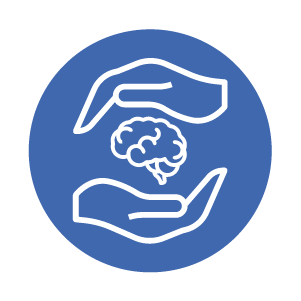
Featured Resources:
Here are some fun activities to do as a family no matter the size of your green or blue space:
- Coordinate a nature scavenger hunt.
- Draw with sidewalk chalk.
- Read a book under a tree.
- Blow bubbles.
- Collect rocks and paint them together.
- Try stargazing or cloud gazing.
- Play a board game.
- Create a nature collage.
- Search for bugs.
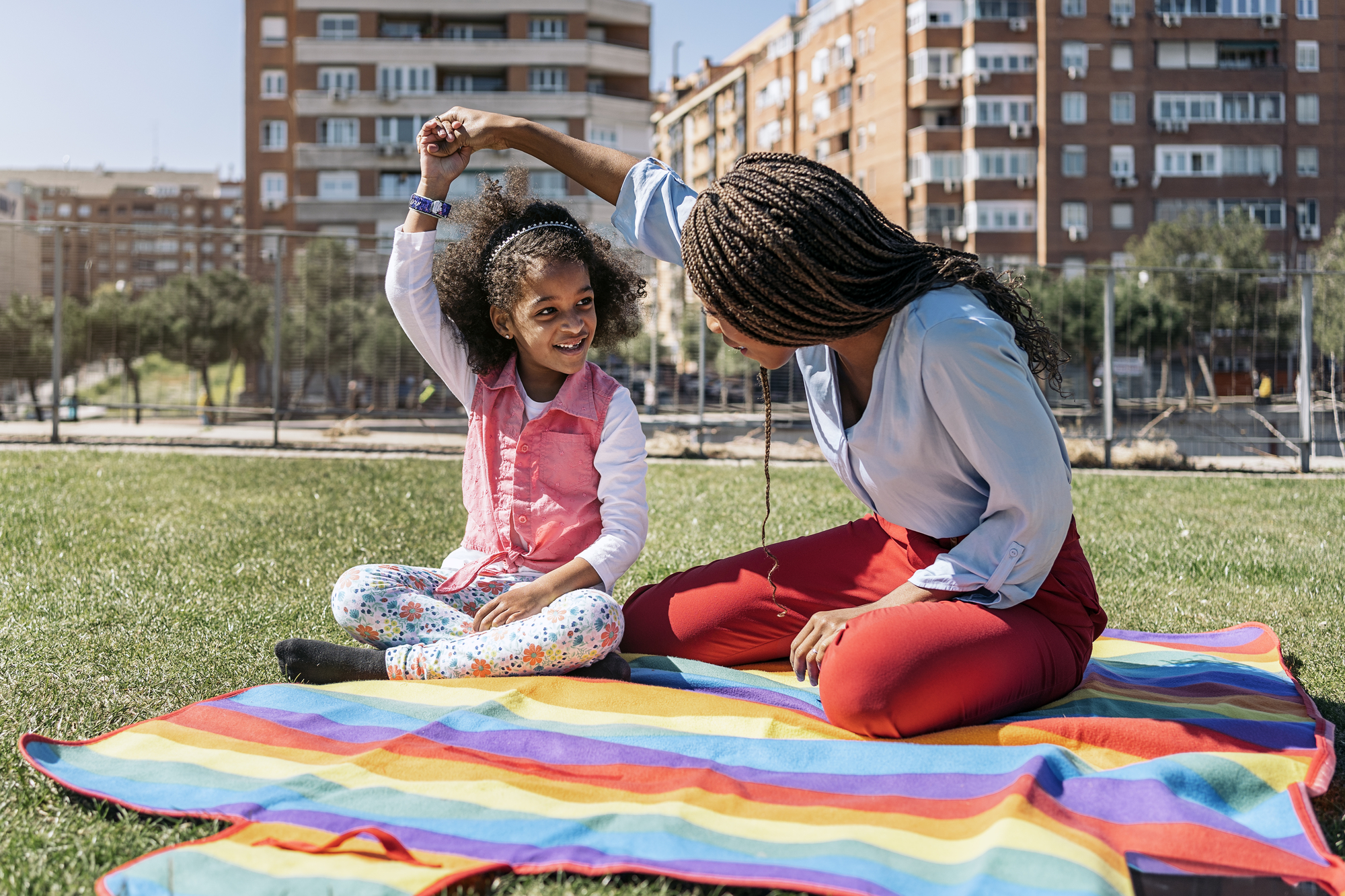
Resources Cited:
Bratman, G., Berman, C., Cochran, B., de Vries, S., Flanders, J., Folke, C., Frumkin, H., Gross, J., Hartig, T., Kahn Jr, P., Kuo, M., Lawler, J., Levin, P., Lindahl, T., Meyer-Lindberg, A., Mitchell, R., Roe, J., Scarlett, L., Smith, J., … Daily, G. (2019, July). Nature and mental health: An ecosystem service perspective | science … Nature and mental health. An ecosystem service perspective. Retrieved March 24, 2023, from https://www.science.org/doi/10.1126/sciadv.aax0903
Cox, Daniel & Shanahan, Danielle & Hudson, Hannah & Plummer, Kate & Siriwardena, Gavin & Fuller, Richard & Anderson, Karen & Hancock, Steven & Gaston, Kevin. (2017). Doses of Neighborhood Nature: The Benefits for Mental Health of Living with Nature. BioScience. 1. 10.1093/biosci/biw173.
Tillmann S, Tobin D, Avison W, et al Mental health benefits of interactions with nature in children and teenagers: a systematic review J Epidemiol Community Health 2018;72:958-966.
Vert, C., Gascon, M., Ranzani, O., Marquez, S., Triguero-Mas, M., Cassasco-Turigas, G., Arjona, L., Koch, S., Llopis, mara, Donaire-Gonzalez, D., Elliot, L., & Nieuwenhuijsen, M. (2020, June 19). Physical and mental health effects of repeated short walks in a blue space environment: A randomised crossover study. Environmental Research. Retrieved March 24, 2023, from https://www.sciencedirect.com/science/article/abs/pii/S0013935120307076#preview-section-abstract
